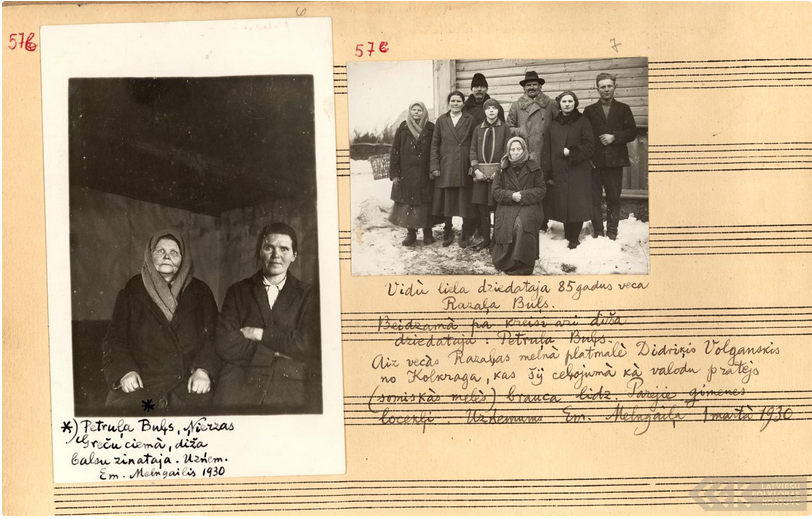I was looking at Finnish linguist Heikki Ojansuu's 1911 field notes on Leivu (spoken near Lejasciems and Ilzene in NE Latvia) and found this note about a priest giving some Leivu speakers sections of the Gospel of Matthew in Livonian, but them mostly not understanding it.
"~5 years ago an Ādaži priest gave several Ilzene Estonians sections from “Püwa Matteus Ewangelium lihbischki Pehtersburgs 1880”. I saw them in 2 places. The men complained they couldn't understand it, except in places. The Võro New Testament would've been more understandable."
This anecdote seems a part of the story of Latvians trying to understand who the speakers of the South Estonian language island dialects (Lutsi, Leivu) are and whether their languages are the same as or similar to Livonian - Latvia's indigenous Finnic language.
Similarly, Latvian folklorist Emilis Melngailis brought along Livonian speaker Didrõk Volganski to meet Lutsi speakers (who Melngailis thought might be Livonians) to see if they spoke the same language. Here's Melngailis, Volganski, and Lutsis in 1930.
http://garamantas.lv/en/unit/361299
http://garamantas.lv/en/unit/361299
But, as the journal "Mūzikas apskats" writes in 1934, Melngailis had no success. Lutsi & Leivu are too different from Livonian to be mutually intelligible: Volganski "couldn't talk to the Greči village Livonians [i.e.,Lutsis] at all. He says (1,2=) ikš, kakš, they say ūts, kāts."
In my own Lutsi field work, I heard a similar story. A Latvian truck driver was going to Estonia in the 1970s and brought a Lutsi speaker with him to Tartu, thinking the old man spoke the same kind of Estonian as people there, but no one could understand him when they got there.
That and other stories about Lutsi language and identity can be found (if you speak Latvian) in my recent book on the Lutsi language, people, their villages and history: https://www.academia.edu/44072597/Lutsi_kiele_lementar_Ludzas_igau%C5%86u_valodas_%C4%81bece
So Lutsi and Leivu are their own unique lg communities. Different from Livonian and also standard Estonian - & to a lesser extent, South Estonian dialects in Estonia today, but form unique cultural communities enmeshed in the diverse patchwork of ethnicities of eastern Latvia.
And to finish off this thread, a map of the language islands and South Estonian dialects. There's also a third language island variety (Kraasna) just across the border in Russia. None of the language island varieties have living fluent speakers today.
https://commons.wikimedia.org/wiki/File:South_Estonian_language_area.jpg#/media/File:South_Estonian_language_area.jpg
https://commons.wikimedia.org/wiki/File:South_Estonian_language_area.jpg#/media/File:South_Estonian_language_area.jpg

 Read on Twitter
Read on Twitter

![But, as the journal "Mūzikas apskats" writes in 1934, Melngailis had no success. Lutsi & Leivu are too different from Livonian to be mutually intelligible: Volganski "couldn't talk to the Greči village Livonians [i.e.,Lutsis] at all. He says (1,2=) ikš, kakš, they say ūts, kāts." But, as the journal "Mūzikas apskats" writes in 1934, Melngailis had no success. Lutsi & Leivu are too different from Livonian to be mutually intelligible: Volganski "couldn't talk to the Greči village Livonians [i.e.,Lutsis] at all. He says (1,2=) ikš, kakš, they say ūts, kāts."](https://pbs.twimg.com/media/EqRioFHXIAAEG7W.png)


